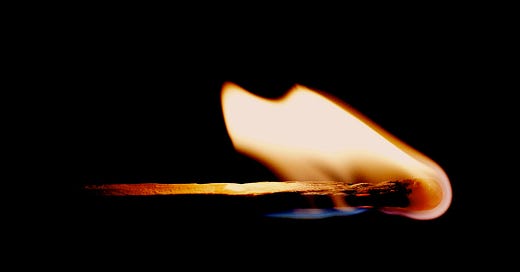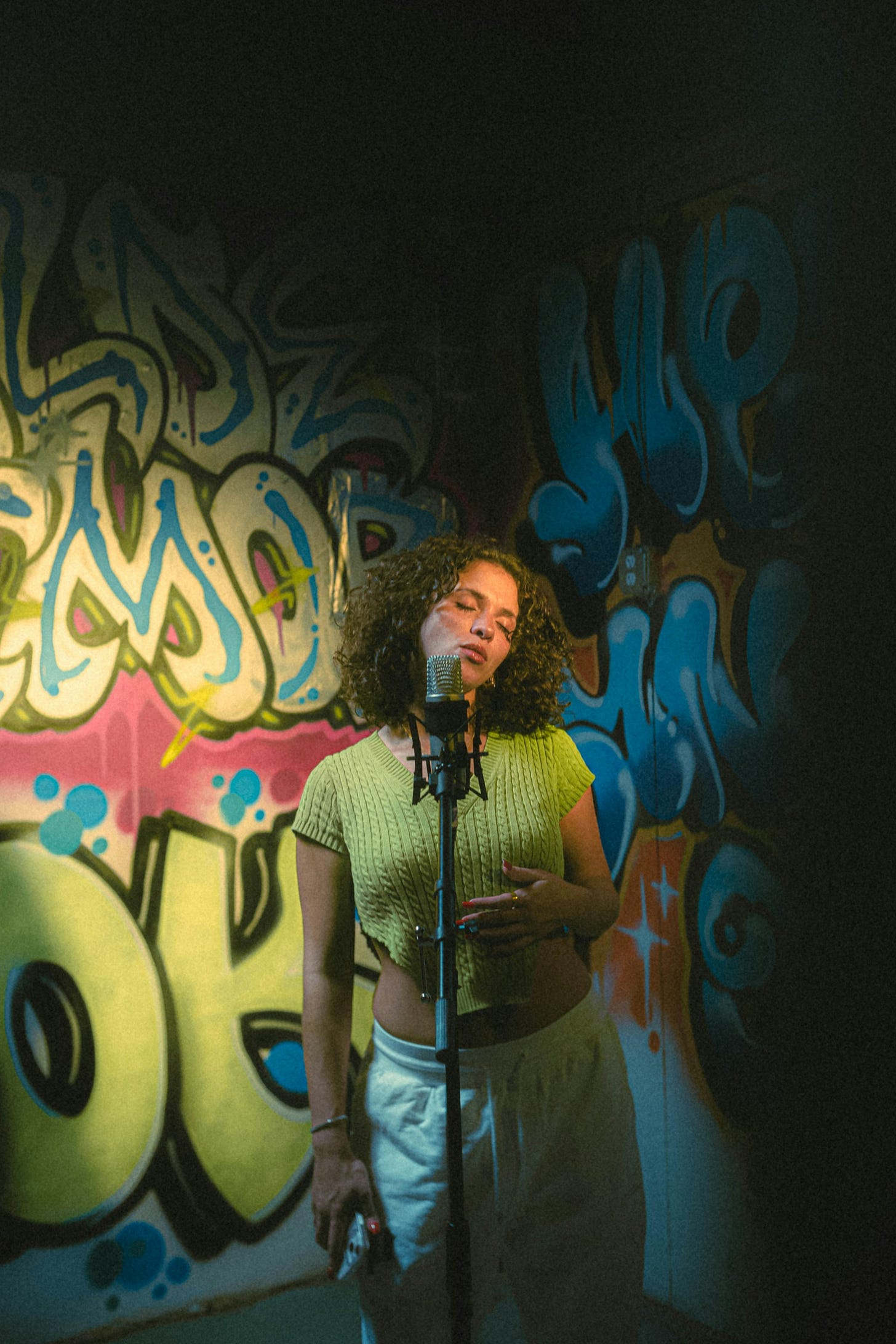Photo by Yaoqi on Unsplash
Protest, Part 1: When Poetry Ignites Us
Dear Seized Readers,
Some of the most powerful poetry burns with the spirit of protest. Each of us has encountered injustice at some point in our lives—We have a cause or causes that build a fire within us. Many writers feel passionately obligated to raise consciousness and so inspire us to fight for what is right.
What injustices rattle you? Share your thoughts and writing.
After the 2008 financial crisis, I wrote “Refuge,” a call to action on behalf of many who lost their homes, livelihoods, and life savings. Families were afraid of financial hardship. I could feel the anxiety rippling through my community.
Pay attention to feelings of fear and frustration within you or which you witness within your community. These emotions can bring forth thoughtful ideas, which when rendered carefully via speech and writing, serve as tools for inciting moral and compassionate action.
Although the issues we face now are both like those of the Great Recession and yet more complex, fear remains. We can choose to withdraw and hope that all will eventually be well in our nation and world, or we can battle for ourselves and others who are adversely affected. In addition to writing, there are many concrete ways to help ourselves and others. Check out this great list created by First Step Alliance, “25 Social Justice Organizations that are Changing the Narrative.”
Here is my poem, “Refuge.”
Photo by Amar A on Unsplash
Refuge
In this fearful place,/
we clutch our lives/
and draw inward,/
seeking the consolation
of home fires,/
selfishly guarding
our blessings,/
spoon-feeding them
hot soup/
and crusts of bread.
But in the pits
of our stomachs/
and the chambers
of our souls/
we are famished,/
lost like Hansel
and his sister,/
searching the skies/
and the thick, dark forest/
for the true path.
Nightmares
of closed doors/
and empty purses
haunt us,/
hobgoblins
that steal our peace,/
break down resolve
to reach/
across backyard fences,/
place our gifts
in neighbors’ hands,/
those who wake fatigued/
with nothing/
but their own hearts to eat.
Let us dare to feed
and clothe strangers,/
embrace those surviving
in hostile winter outposts/
of this hard
and hoarding society,/
demand jobs
for our teachers/
and homes
for our families/
struggling
from dawn to dusk/
to reclaim their lives,/
their grit and pluck/
shouting their promise.
Diana Ewell Engel published in the 11/2011 issue of Wild Goose Poetry Review
Photo by Gene Brutty on Unsplash
Drawing on What We Know and Love
What are your thoughts and questions about “Refuge?”
I knew from the outset that I wanted my poem to be a call for compassion and generosity. I saw that our communities needed to embrace recession victims with food, clothing, job help, housing. So, I devised my final stanza, the call for action, at the start of my writing process.
I wrote down all of the images that immediately came to me. I mean, all of them. This is critical to crafting a strong piece of writing. Begin with a free-write and dump everything in your brain onto paper. You won’t need each initial image and line, but what’s unused may lead to another poem.
Photo by Adam Rutkowski on Unsplash
As I consider “Refuge” now, I remember that I wrote this poem during early fall and drew from what I knew and loved about autumn as I sought vivid imagery. So, hearth fires, soup and bread enter the poem. Fortunately, I had been immersing myself in fairy tales at that time, hoping to write a modern folk tale. As I thought about bread, I remembered how Hansel and Gretel left crumbs along the path they walked in the woods.
Fairy tales are dark, often violent, like nightmares. By the time I reached the third stanza, I had gathered some image and line momentum. The nightmares, haunting, and hobgoblins claimed the page! Because I focused on hunger, the ending lines, “those who wake fatigued / with nothing / but their own hearts to eat” came to me. When this gift of the right line and image happens and our synapses are firing creatively, there’s no better feeling. Typically, some table pounding or teeth gnashing precede this adrenalin rush—no easy way around the difficult work required to make our writing real for our readers. I must dig, usually, within my mind and notebook for each image and line.
Photo by Frankie Cordoba on Unsplash
A final tip as you consider my word choices: If you want to write or enjoy poetry to the fullest, immerse yourself in verse and read it aloud. Vivid verse sings with musical words which add emphasis and heighten emotion. As an example, notice the repetition of c, f, s, and h sounding words in “Refuge.”
In the coming weeks, we will be diving into the protest verse of astounding poets like Ada Limon and Jericho Brown.
Today’s Website Pick
Photo by Diana Ewell Engel of the Poetry Out Loud website homepage
Poetry Out Loud is a terrific website for listening to outstanding poetry. This free resource provides an easy way to hear many different poems spoken by acclaimed poets and actors. You’ll find the music of rhymed and free verse here.
American poet Dana Gioia in “The power of poetry” track says, “It (poetry) stalks the mind with unforgettable language and ideas.” How true, and it is this “unforgettable language” that poets seek to bury within their ears and heads to learn how to create musicality within their verse.
For poetry of protest, choose the audio for “We Wear the Mask” by Paul Laurence Dunbar as recited by poet Rita Dove and Langston Hughes’ “Dream Deferred” read by Khandi Alexander. For the delight of gorgeous musicality, listen to Dylan Thomas’ “Do Not Go Gentle into That Good Night” recited by Alfred Molina. To read other protest poems, go to the bottom of the homepage. Under “Find Poems,” click into “Browse Collections” to discover poems of “Social Justice and Equality.”
What poems do you enjoy reading aloud? Share what you’re currently reading and/or writing.
Photo by JK Sloan on Unsplash











I really love “Refuge.” It speaks to me especially at this time. This needs to be published again now. It is even more relevant. Your imagery speaks to me. I use this word too much, perhaps, but it is very powerful and also rich.
Refuge is such a beautiful poem. I enjoyed reading about you process.